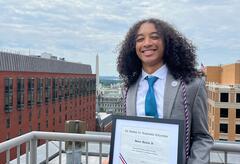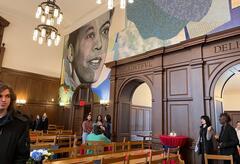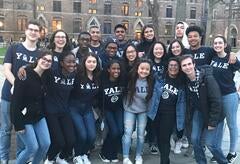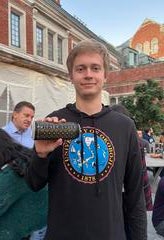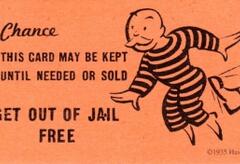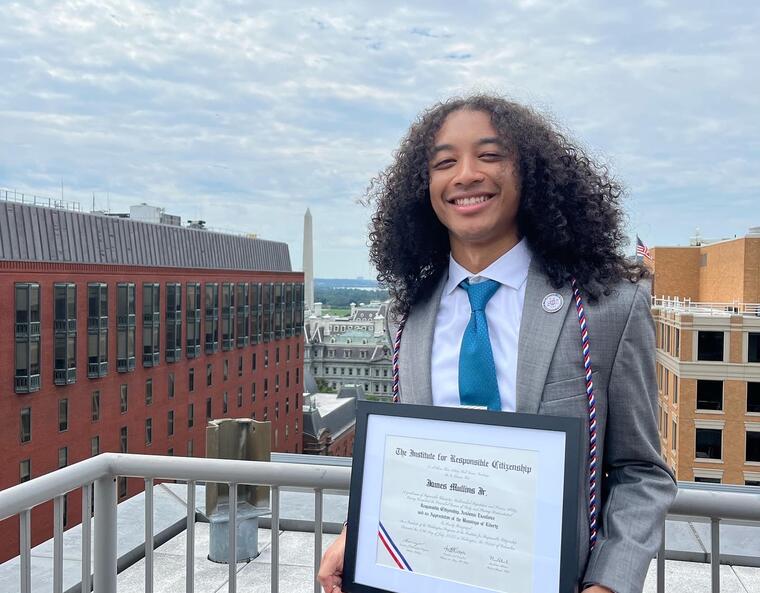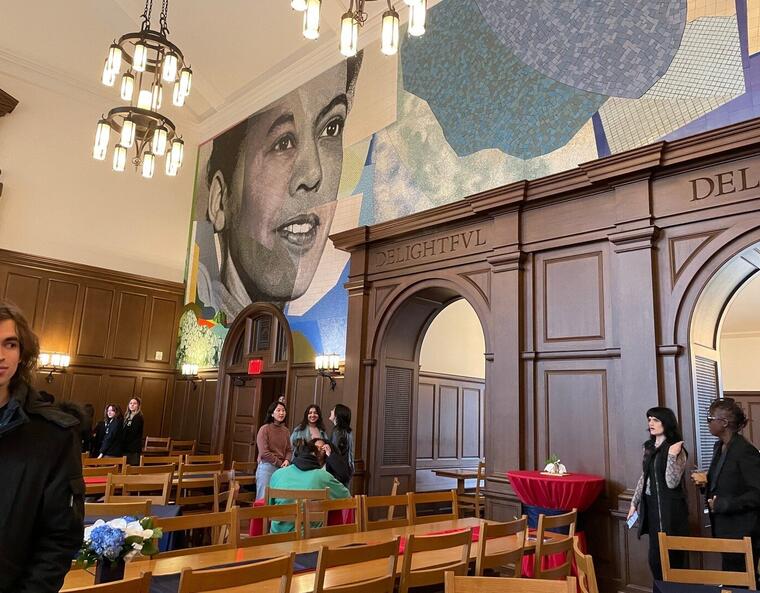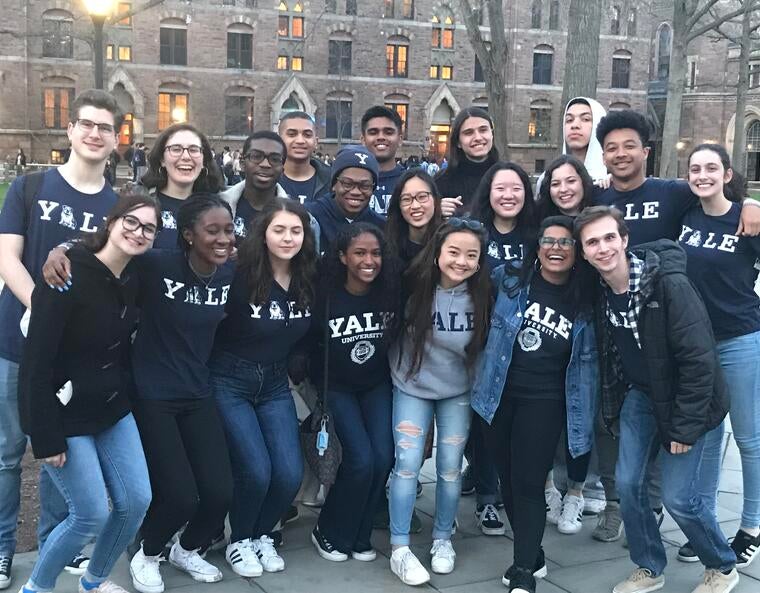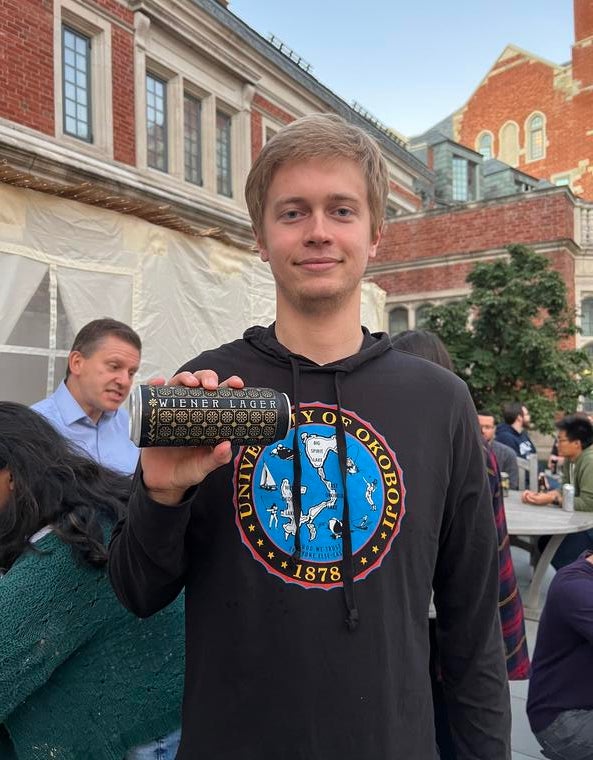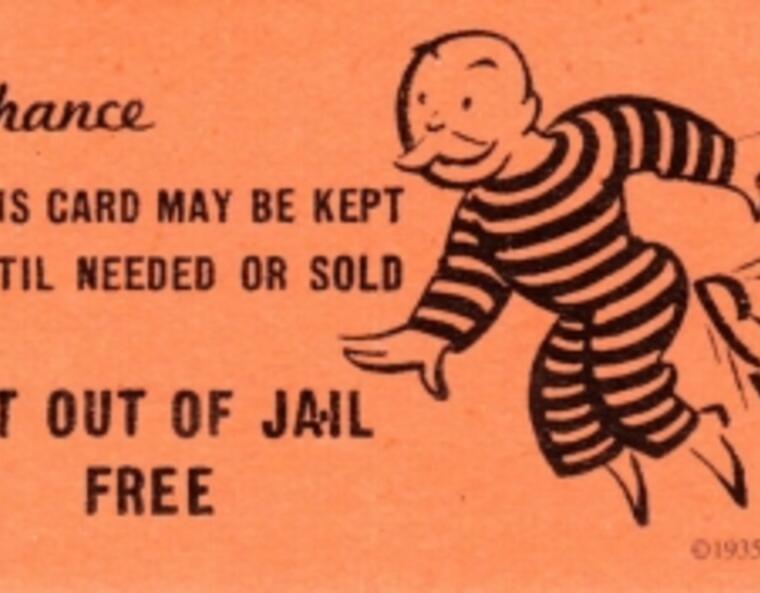
I took 33 classes throughout my four years at Yale — I can honestly say that I learned something valuable in each one, though I’ll admit that I enjoyed some classes significantly more than others. You might be wondering: “Well, which class was your absolute favorite?” Let me tell you about “Imagining Abolition: Foundations and Futures”, the class that (seriously) changed my life.
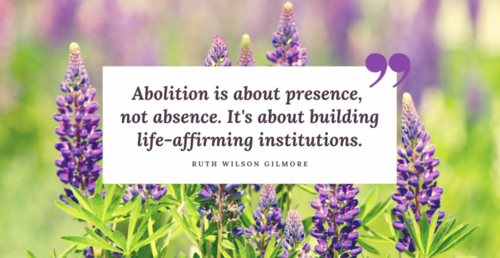
Once I saw this picture on the course homepage, I knew that I was in for a treat.
Looking for courses to take in my senior fall, I really wanted to take a class centered around abolitionism in theory and practice. So, I searched for “abolition” in our Course Search engine, and there it was! Even better, it was a Residential College Seminar — a course that falls outside of traditional academic departments, often taught by individuals who are not engaged in academia full-time. In this case, the class was co-taught by Sarah Medina Camiscoli, a lecturer in our Education Studies department and co-founder of a legal advocacy group in New York, as well as Kailyn Gaines, a third-year student at the Yale Law School building a career in abolitionist legal spaces. Plus, the seminar was sponsored by my own Pauli Murray College, so it felt like the stars were aligning.

Me once I saw this course on Course Search.
I’d describe the course’s structre as flat — by this I mean that it felt more democratic and less hierarchical than any other class I’ve taken at Yale or otherwise. As a student, I felt like my opinions and perspectives were truly valued. After our first class, Sarah and Kailyn provided an online copy of the syllabus that we could continually comment on, and they’d take our input on additions or removals. Throughout each session, everyone — including instructors — raised their hands when they wished to speak, and would wait to be called on by whoever was speaking. So, when I say that I felt like my presence in the class was truly valued, I don’t just mean that the people in the class were listening to me; I mean that students’ input carried significant weight in how the course was conducted.
In terms of the content, I would describe the class as both radical and expansive. Our readings and discussion were imaginative and creative, exploring critiques of our current society and proposing alternative understandings of harm, justice, and repair that I could only describe as radically different from our status quo. Our semester was expansive because the systems and relationships that we can view with an abolitionist lens are wide-reaching — we covered the prison industrial complex, racial capitalism, community-based organizations, and many more areas. Collectively, we were able to engage in reimaginings of systems that are foundational to our society, doing so in a way that centered people’s dignity and humanity.
Finally, I would describe the assignments as extremely practical. For our midterm assignment, we each chose to integrate an abolitionist practice into our daily lives, then submit a reflection on the experience. I chose to engage in my classes somatically — meaning that I reacted to my readings and assignments not only from an analytical perspective, but also from a place of emotional and physical awareness. It was such a rewarding practice because I felt like I was actually able to engage with my work as JT, the person, rather than JT, the academic. Sometimes a reading’s contents will make me feel uneasy or stressed (or happy and hopeful), and it was nice to take time to engage with those feelings rather than push them aside for the sake of the assignment. It’s a practice that I’ve carried with me in the months since, and one I’ll probably continue throughout the rest of my time in academia. I can’t say that I leave most midterm assignments feeling better than when I started, let alone happy and fulfilled like I did last fall.

How it felt to let myself feel human emotions while reading for class
Imagining Abolition was a transformative experience for a few reasons. It showed me how I think a class should be taught, in a collaborative manner that creates a community made up of instructors and students alike. The class affirmed for me my commitment to abolitionism, giving me a deeper understanding of the framework across various areas. The readings and assignments were informative and practical, giving me techniques and experiences that I’ll carry with me throughout my academic and professional careers. So, I feel extremely confident when I say that I would’ve come to Yale just to take this class.
